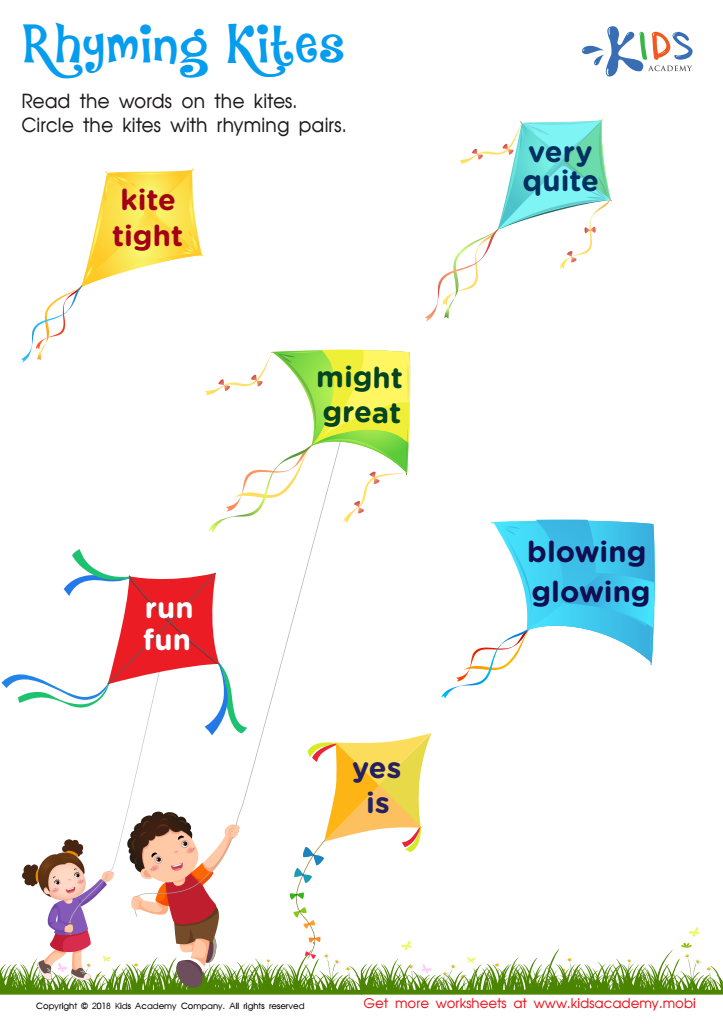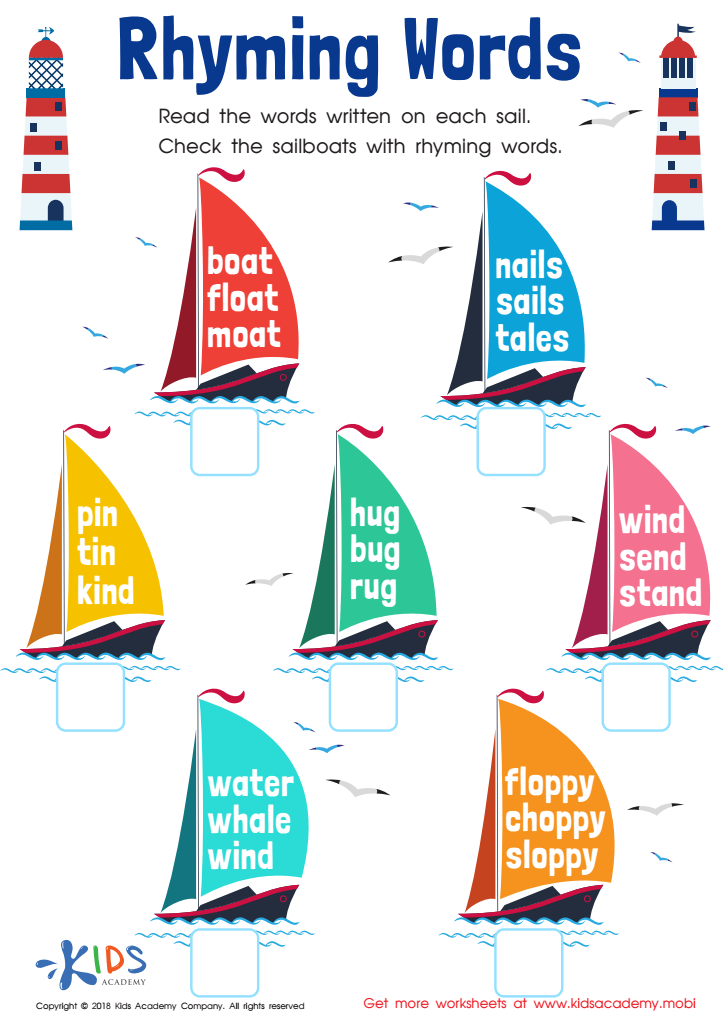Vocabulary expansion Normal Rhyming Worksheets for Ages 6-8
3 filtered results
-
From - To
Introduce your child to the wonderful world of words with our Vocabulary Expansion Normal Rhyming Worksheets for ages 6-8. These engaging worksheets are designed to make learning fun by helping children recognize rhyming words, enhancing both their reading and phonics skills. The activities promote critical thinking and boost vocabulary through playful exercises that capture young learners’ imaginations. Perfect for classroom use or at-home practice, our worksheets provide an ideal blend of education and entertainment. Equip your child with the tools they need for early literacy success and a solid language foundation with this expertly crafted resource.


Rhymes in Poems Worksheet


Rhyming Kites Worksheet


Rhyming Words Worksheet
Vocabulary expansion and the use of rhyming are essential aspects of early childhood education, particularly for children aged 6-8. During these formative years, children are exceptionally receptive to learning new words and concepts, which directly influences their language development, reading comprehension, and overall communication skills.
First, a rich vocabulary allows children to express themselves more clearly and effectively. When children possess a broad range of words, they can articulate their thoughts, emotions, and ideas more precisely, fostering better relationships and social interactions. This clarity in communication also translates to improved academic performance, as students with an extensive vocabulary are better equipped to understand and engage with educational material.
Rhyming, on the other hand, plays a crucial role in phonemic awareness, which is the ability to recognize and manipulate sounds in words. This skill is critical for reading development. Rhymes also make learning fun and engaging, which helps maintain a child's interest and motivation. Moreover, recognizing rhyming patterns enhances memory and recall abilities, as the rhythmic and repetitive nature of rhymes allows children to more easily remember new words and concepts.
Therefore, both parents and teachers should prioritize vocabulary expansion and rhyming activities to provide a strong foundation for literacy and effective communication. These skills support future academic success and enrich a child’s ability to interact with the world around them.
 Assign to My Students
Assign to My Students













